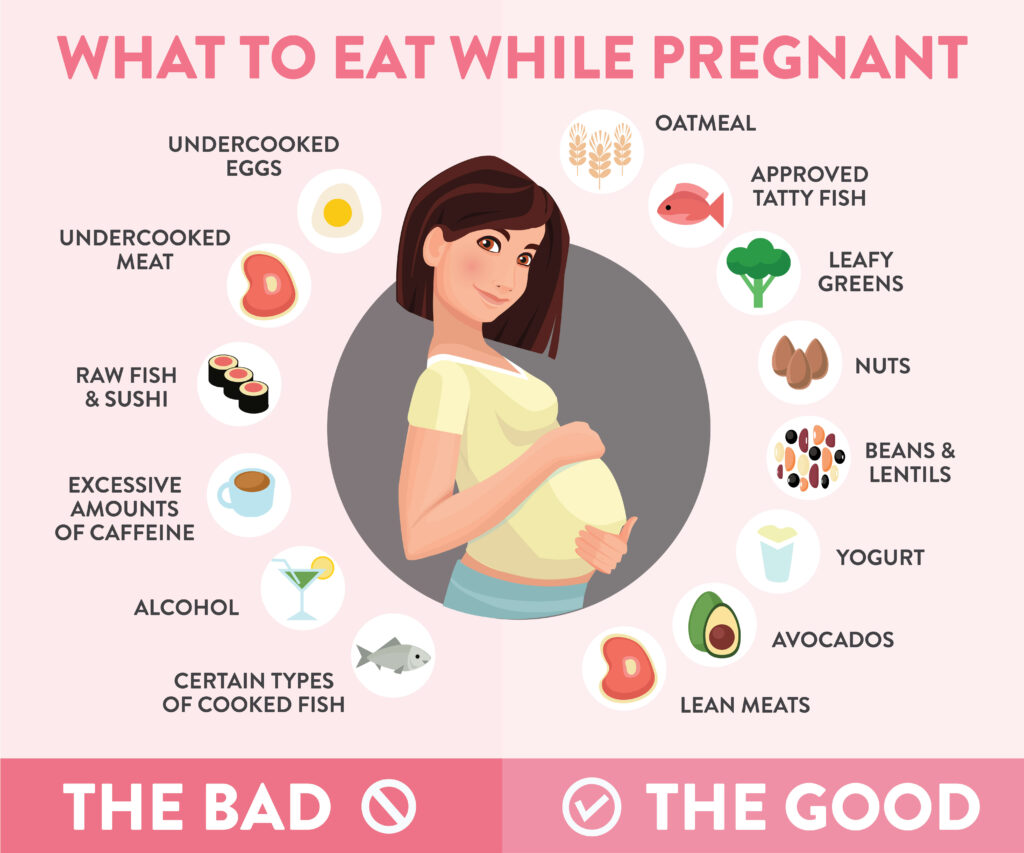Pregnancy is a time of great change and growth, and it is important to be mindful of what you eat to ensure the health and well-being of both you and your baby. Some foods can carry a higher risk of food-borne illness or contain harmful substances that can be dangerous for a developing fetus. Here is a list of foods to avoid during pregnancy:
Raw or undercooked meat, poultry, fish, and eggs: Raw or undercooked animal products can contain harmful bacteria such as Salmonella or E. coli, which can cause food poisoning and harm the baby. It is important to cook these products thoroughly to reduce the risk of infection.
Unpasteurized dairy products: Unpasteurized dairy products, such as raw milk or soft cheeses, can contain harmful bacteria such as Listeria, which can cause serious illness in pregnant women and their babies. It is best to avoid these products and choose pasteurized alternatives instead.
Certain types of fish: Some types of fish, such as swordfish, tilefish, shark, and king mackerel, can contain high levels of mercury, which can harm the developing foetus. It is recommended to limit your intake of these fish to no more than 3 servings per week and to choose low-mercury options, such as salmon or tuna, instead.
Alcohol: Alcohol is a known teratogen and can cause harm to the developing foetus. It is best to avoid alcohol completely during pregnancy.
Caffeine: Caffeine can cross the placenta and affect the developing foetus, potentially leading to low birth weight and other complications. It is recommended to limit your caffeine intake to no more than 200 mg per day during pregnancy.
Artificial sweeteners: Artificial sweeteners, such as aspartame and saccharin, have not been thoroughly studied in pregnancy and may be harmful to the developing foetus. It is best to avoid these sweeteners and opt for natural sweeteners instead.
Certain types of cheese: Soft cheeses, such as blue cheese, feta, and Brie, can contain Listeria, which can cause serious illness in pregnant women and their babies. It is best to avoid these cheeses and choose pasteurized alternatives instead.





